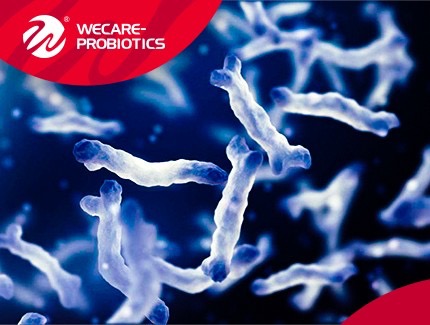Industry Insights
Home > News > Industry Insight > WecStrain™ Lacticaseibacillus Casei LC15 with Immunomodulatory Function, Uses, Products, and Methods Thereof
WecStrain™ Lacticaseibacillus Casei LC15 with Immunomodulatory Function, Uses, Products, and Methods Thereof

Abstract
The study investigates the properties and applications of a novel strain of Lacticaseibacillus casei LC15 with significant immune-modulating and antimicrobial activities. The strain, deposited by CCTCC NO: M 20231115, has demonstrated efficacy in stimulating macrophage activity and inhibiting various pathogenic bacteria, making it a promising candidate for therapeutic applications in immunomodulation and antimicrobial treatments.
Introduction
The human immune system plays a critical role in protecting the body against pathogens. Probiotics, such as Lacticaseibacillus casei, are beneficial microorganisms that support the immune system by enhancing gut health and balancing microbial populations. This study focuses on the newly identified strain LC15, which exhibits potent immune-modulating and antimicrobial properties.
Materials and Methods
Strain Identification and Preservation: Lacticaseibacillus casei LC15 was isolated from yogurt samples and preserved under the accession number CCTCC NO: M 20231115 at the China Center for Type Culture Collection (CCTCC).
Immune Modulation Assays: The immune-modulating effects of LC15 were evaluated using RAW264.7 macrophage cells. The assays measured cell proliferation, phagocytic activity, and cytokine production, including TNF-α and IL-10.
Antimicrobial Activity: The antimicrobial spectrum of LC15 was assessed by co-culturing with various pathogens, including Staphylococcus aureus, Escherichia coli, Salmonella spp., Streptococcus agalactiae, and Klebsiella pneumoniae.
Results
Immune Modulation: LC15 significantly enhanced RAW264.7 cell proliferation and increased the phagocytic index. Additionally, LC15 stimulated the production of TNF-α and IL-10, indicating a robust immune-modulating capability.
Antimicrobial Activity: LC15 exhibited broad-spectrum antimicrobial activity, effectively inhibiting the growth of S. aureus, E. coli, Salmonella spp., S. agalactiae, and K. pneumoniae. These effects were observed in vitro through co-culturing experiments.
Discussion
The findings demonstrate that Lacticaseibacillus casei LC15 possesses strong immune-modulating properties and broad-spectrum antimicrobial activity. The strain's ability to enhance macrophage function and inhibit pathogenic bacteria positions it as a valuable candidate for developing immune-modulating drugs and antimicrobial agents.
Conclusion
Lacticaseibacillus casei LC15, with its dual functionality in immune modulation and pathogen inhibition, offers significant therapeutic potential. Future research should focus on clinical trials to validate these effects in vivo and explore the formulation of LC15-based products for medical and health applications.
Detailed Description of Lacticaseibacillus casei LC15
Background
Probiotics are known for their health benefits, particularly in gut health and immune system support. Lacticaseibacillus casei is a well-documented probiotic species. However, new strains with enhanced properties are continually being sought to meet industrial and consumer demands.
Strain Characteristics
Lacticaseibacillus casei LC15 was identified from yogurt and has been preserved with the accession number CCTCC NO: M 20231115. This strain exhibits unique properties that enhance its immune-modulating and antimicrobial activities compared to existing strains.
Immune Modulating Effects
Experiments with RAW264.7 macrophage cells showed that LC15 promotes cell proliferation and enhances phagocytic activity. Additionally, LC15 increases the production of cytokines TNF-α and IL-10, which are crucial for initiating and regulating immune responses.
Antimicrobial Properties
LC15 has demonstrated a broad antimicrobial spectrum, effectively inhibiting multiple pathogenic bacteria such as S. aureus, E. coli, Salmonella spp., S. agalactiae, and K. pneumoniae. These results highlight LC15's potential as an antimicrobial agent.
Applications
Based on its properties, LC15 can be used in the formulation of immune-modulating drugs and antimicrobial agents. Its application extends to preventing infections and enhancing overall immune health, making it a valuable addition to probiotic-based therapies.
Future Directions
Further research should involve clinical trials to confirm the efficacy of LC15 in human subjects and explore its potential in commercial probiotic formulations. Additionally, investigating the mechanisms behind LC15's immune modulation and antimicrobial actions can provide deeper insights into its therapeutic potential.









 Leave a Message
Leave a Message Email
Email Linkedin
Linkedin